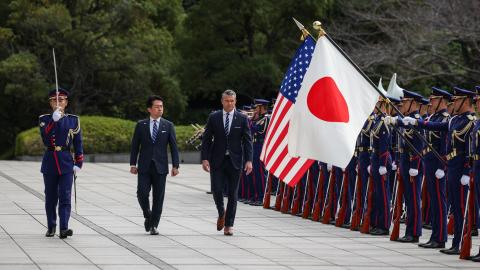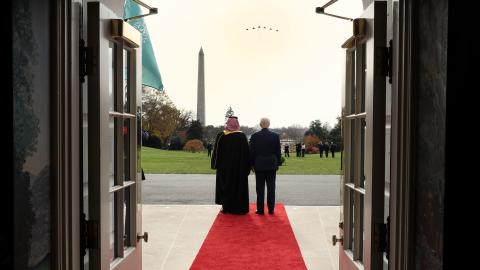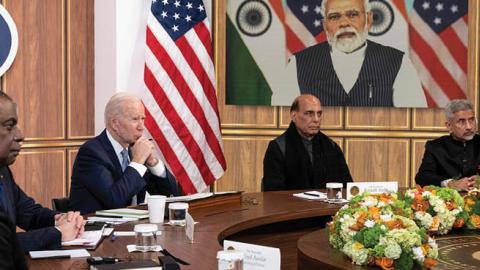The headlines focused on Europe last week as Russia regrouped for another brutal assault on Ukraine, but the Indo-Pacific is also heating up. Kurt Campbell, senior Asia policy maker at the National Security Council, planned a trip to the Solomon Islands to stave off a potential Chinese diplomatic coup, while President Biden added a virtual meeting with Indian Prime Minister Narendra Modi even as Secretary of State Antony Blinken and Defense Secretary Lloyd Austin prepared for in-person meetings with their Indian counterparts. In the long run, both sets of meetings could change world politics more than the struggle in Ukraine.
The Solomon Islands are a nation in the Pacific between Australia and Hawaii that includes six larger islands and almost 1,000 small ones. That strategic location made it the scene of some of the most bitter fighting in World War II. Instability has been more the rule than the exception since the islands gained independence in 1978. The roughly 700,000 inhabitants speak 80 different languages. The islands hold significant mineral deposits, and the surrounding waters offer rich fishing prospects, but continuing unrest along with pervasive corruption has discouraged foreign investment. The most recent round of rioting, in November 2021, ended only after Australian troops arrived.
Until 2019, the Solomon Islands maintained diplomatic relations with Taiwan. Last month, news broke that the Solomon Islands and Beijing had drafted a security agreement that could allow Chinese military forces onto the islands. The complicated politics of tiny Pacific island nations are less attention-grabbing than missile strikes in the Donbas, but keeping the Western Pacific aligned with Washington might matter more to our future security than the outcome of Vladimir Putin’s war.
Read the full article in the Wall Street Journal

















